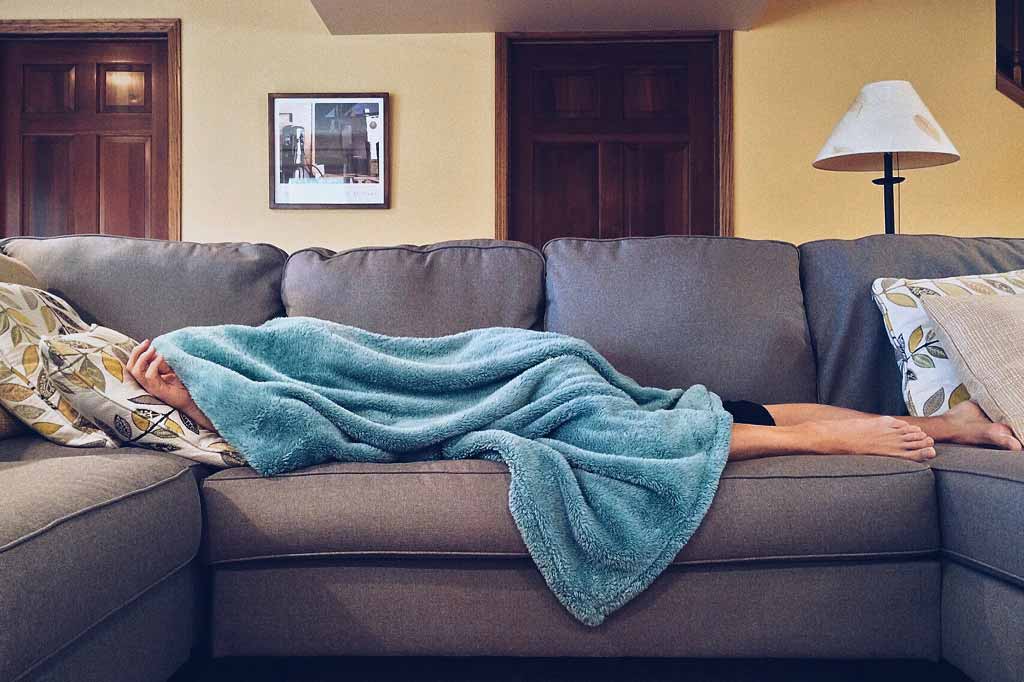Don't lose sleep over reports that one bad night can spark dementia
Neurology

'Just ONE bad night’s sleep ‘increases your chances of Alzheimer’s,’ experts fear' is the misleading claim in The Sun
"Just one bad night's sleep 'increases your chances of Alzheimer's'," is the misleading headline in The Sun, which the Mail Online more than matches with the baseless claim that "Just one sleepless night could spark Alzheimer's".
The study that prompted the claim involved only 20 people, none of whom had Alzheimer's disease. They were tracked over the course of just two nights of monitored sleep. During that time they were allowed to sleep as much as they wanted for the first night, and then on the second night they were kept awake by a nurse.
The researchers then used brain scans to measure levels of a protein called beta-amyloid that builds up naturally in the brain. This protein is found in larger amounts in people with Alzheimer's disease, although it is not clear if simply having higher levels of it for a short time increases the risk of Alzheimer's.
The study showed that people had slightly higher (5%) levels of beta-amyloid in their brains after a night of sleep deprivation compared with their levels after a good night's sleep. This brief assessment provides no proof these middle-aged people would go on to develop Alzheimer's if they continued to have sleepless nights. We don't know how their levels of beta-amyloid may vary over time.
We can't draw any conclusions about the relationship between sleep and Alzheimer's disease from this research. All we can say is that generally, getting a good night's sleep brings other important physical and mental health benefits – you can read here about how to sleep better.
Where did the story come from?
The study was carried out by researchers from the National Institutes of Health in the US, Piramal Pharma Inc., and Yale School of Medicine. It was funded by the US National Institutes of Health and the (US) National Institute on Alcohol Abuse and Alcoholism. The study was published in the peer-reviewed journal Proceedings of the National Academy of Sciences of the United States of America.
The UK media's headlines were needlessly alarming. If it were the case that a single bad night's sleep could, as the Mail Online suggests, "spark Alzheimer's" then we would expect far higher rates of the disease, as hardly anyone goes through life without sleeping badly from time to time.
And for some people, such as the parents of a newborn, disturbed sleep is a daily occurrence.
What kind of research was this?
This was an experimental study in which the researchers influenced the sleeping patterns of the participants to look at the effects of sleep deprivation.
There are lots of different ways in which this study could have been improved. We would ideally need a study that assessed people's beta-amyloid levels over time to see what they were like to start with and how they varied from day to day. You could then look at levels of beta-amyloid over several nights of good sleep followed by poor sleep and then good sleep again to get an indication of how much they are influenced by sleep.
A randomised controlled trial that compared people assigned to periods of good and bad sleep could give an even better idea of the direct effect of sleep. This study design would make sure the two groups were similar in all ways apart from the amount of sleep people had.
But even with a trial, it would be hard to see if short-term changes in beta-amyloid were associated with the risk of Alzheimer's disease developing.
A cohort study that followed a large number of people over long periods of time, taking regular brain scans and sleep assessments, then looking at who developed Alzheimer's, may be the best way to explore this possible link. But this is unlikely to be feasible due to both the likely costs involved and the length of follow-up time that would probably be required to make a meaningful assessment.
What did the research involve?
Just 20 healthy people aged 22 to 72 (average 40 years) had brain scans to measure the amount of beta-amyloid in their brains. The researchers had excluded people with a range of physical and mental health conditions, including any history of alcohol or substance misuse, people taking any prescription medications, and those who had recently taken sedatives, stimulants or strong painkillers.
Each person in the study was measured after a good night's sleep and after sleep deprivation at the research centre. The good night's sleep involved sleeping from 10pm to 7am, with a nurse checking every hour whether the person was asleep. The brain scan was scheduled for lunchtime. Sleep deprivation involved waking up at 8am the morning before, and being accompanied by a nurse who made sure they did not fall asleep at all before they were scanned the next day at 1.30pm.
The scans took around 2 hours and people were encouraged to listen to music during the scan to keep themselves awake. No caffeinated drinks were allowed for 24 hours before or during the study, and no food was allowed between midnight and breakfast.
As well as beta-amyloid, the researchers also used questionnaires to assess people's mood, and looked at whether they had particular genes associated with a higher risk of Alzheimer's disease.
What were the basic results?
The study showed that people had slightly higher (5%) levels of beta-amyloid in their brains following the night of sleep deprivation compared to their results following good sleep. However, there was a lot of variation from person to person. There was no association with the person's age, gender, or genetic likelihood of getting Alzheimer's.
The study also showed that people's mood was worse after sleep deprivation compared to good sleep, and that people who had a bigger increase in beta-amyloid had the greatest change in their mood.
How did the researchers interpret the results?
The researchers described their study as "preliminary evidence" that sleep could be one of the factors that affects levels of beta-amyloid in the brain. They speculate that improving sleeping habits could be a potential way to prevent Alzheimer's disease.
They noted, however, that the methods used meant it was not possible to tell the difference between beta-amyloid that had accumulated in the brain in solid plaques (insoluble), and the soluble form that could still be "flushed away" by the body.
Conclusion
This study has many limitations. While it points to some avenues for more research, we can't draw any reliable conclusions from it regarding any possible influence of sleep on Alzheimer's risk.
The biggest problem is that this was a tiny study of a sample of healthy middle-aged adults – none of whom had any signs of dementia. It was a very brief intervention and assessment and there was no long-term follow-up of the people involved.
We don't know:
- how their levels of beta-amyloid may normally vary from day to day
- whether beta-amyloid would accumulate in greater amounts with ongoing sleep deprivation
- whether any of the people in the study would develop Alzheimer's disease or not
- what the "dose effect" might be if there is any link – in other words, whether short-term increases in beta-amyloid from a few bad nights' sleep could really affect risk of Alzheimer's disease
It's also worth noting that the sleep deprivation used in the study was quite extreme (people were awake for around 31 hours), which doesn't necessarily reflect the kind of "poor sleep" that people might experience in their normal lives.
It's probably going to be difficult to gather regular assessments of large numbers of people over time to more reliably answer the question of whether lack of sleep could influence risk of Alzheimer's.
Unfortunately, this research brings us no further forward to answering the possible causes of Alzheimer's.






 Subscribe
Subscribe Ask the doctor
Ask the doctor Rate this article
Rate this article Find products
Find products








